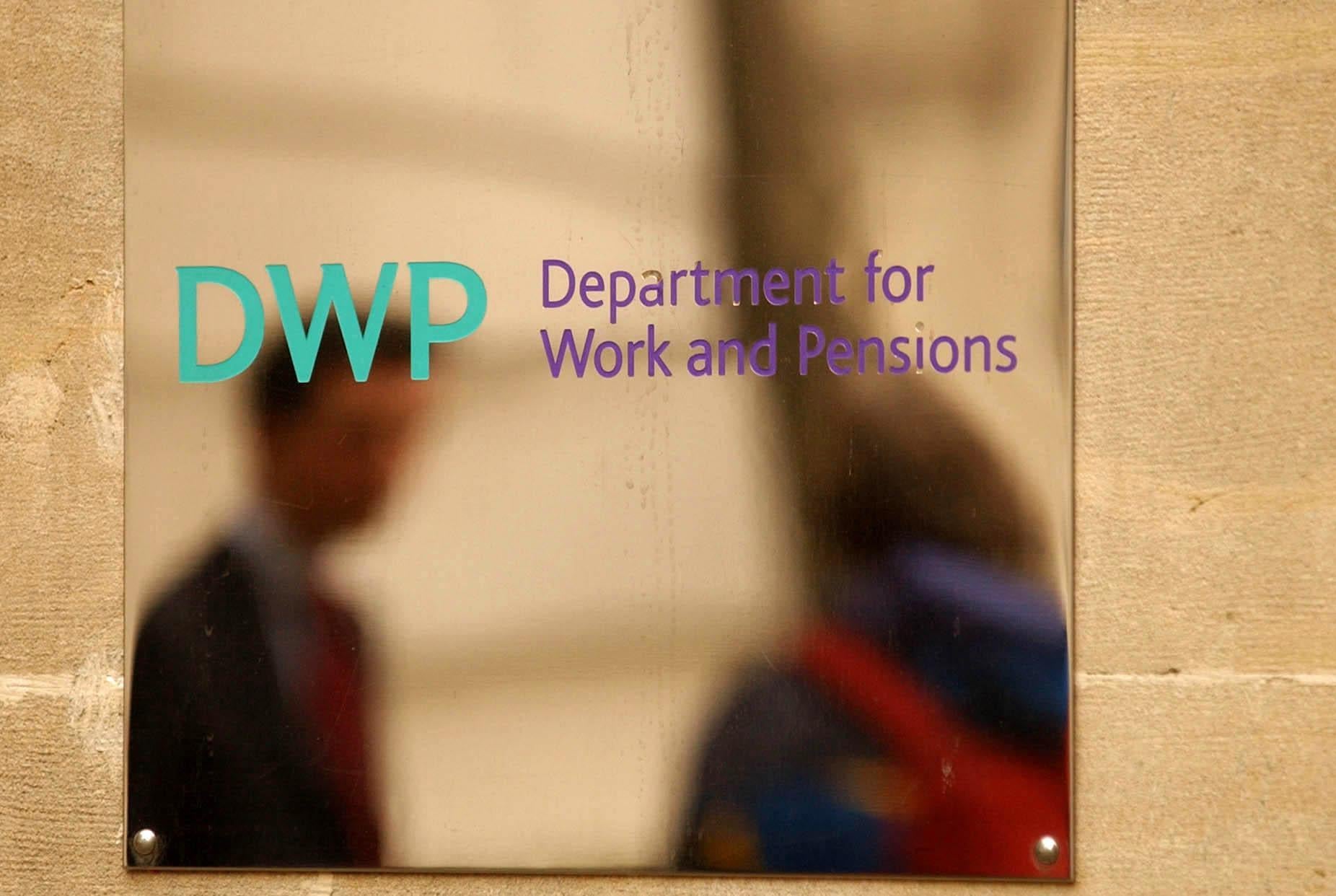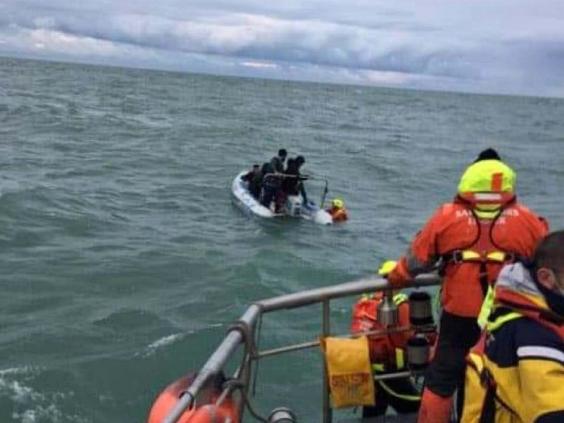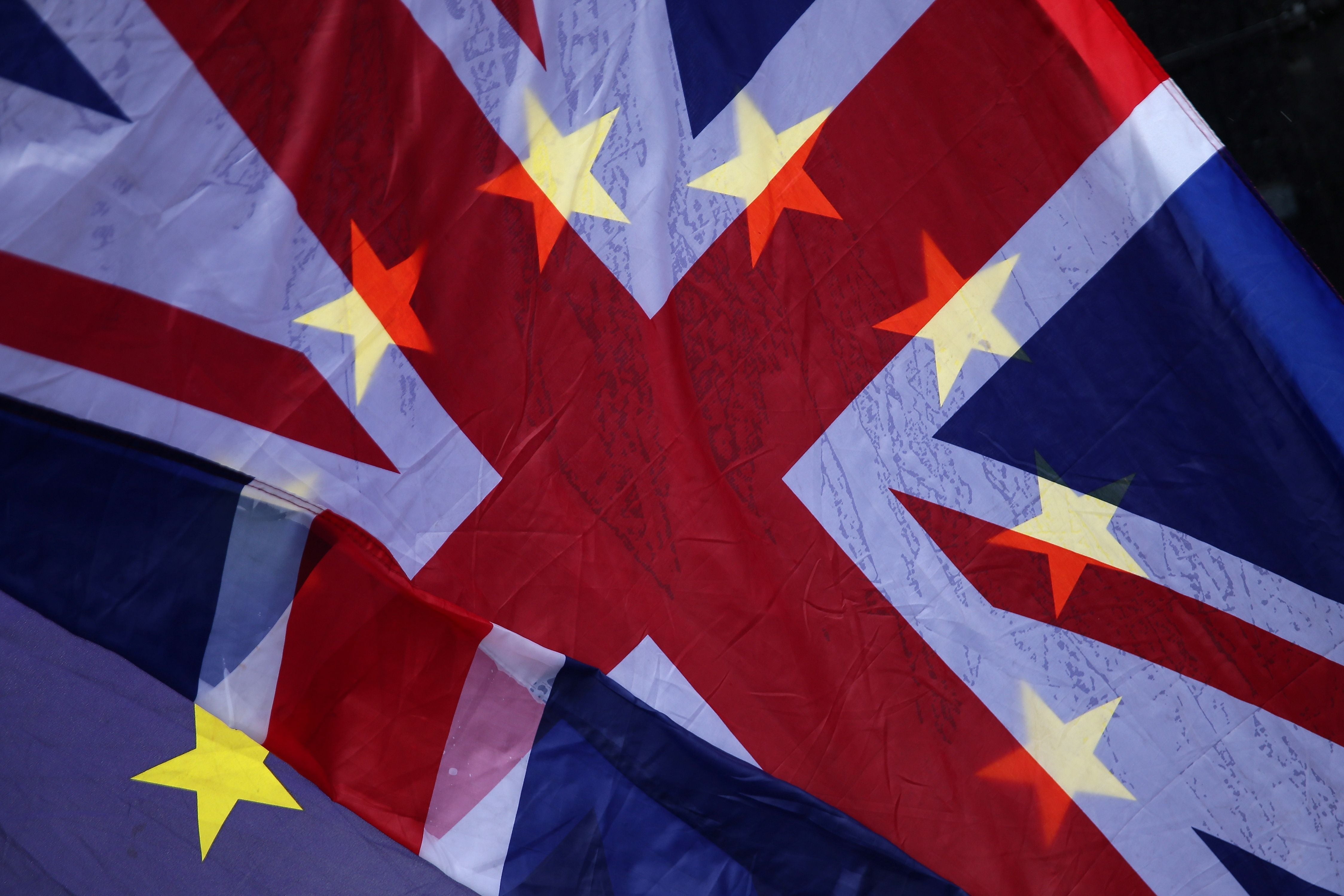Brexit news: No 10 rejects EU offer to ‘intensify’ talks and demands ‘change of approach’ from Brussels
Follow all the latest developments in UK politics
Your support helps us to tell the story
From reproductive rights to climate change to Big Tech, The Independent is on the ground when the story is developing. Whether it's investigating the financials of Elon Musk's pro-Trump PAC or producing our latest documentary, 'The A Word', which shines a light on the American women fighting for reproductive rights, we know how important it is to parse out the facts from the messaging.
At such a critical moment in US history, we need reporters on the ground. Your donation allows us to keep sending journalists to speak to both sides of the story.
The Independent is trusted by Americans across the entire political spectrum. And unlike many other quality news outlets, we choose not to lock Americans out of our reporting and analysis with paywalls. We believe quality journalism should be available to everyone, paid for by those who can afford it.
Your support makes all the difference.Downing Street has rejected an offer from the EU to “intensify” Brexit negotiations – just minutes after Michael Gove welcomed it as a “constructive” move.
The offer from Michel Barnier saw Mr Gove thinking on his feet in the Commons after the Cabinet Office minister had told colleagues the EU was refusing to negotiate on a string of key points.
Despite Mr Gove’s positive reaction, however, No 10 later insisted there was still no basis to resume talks.
Mr Gove also clashed with former prime minister Theresa May, who said the UK’s security will be damaged if police lose access to key databases and partnerships in the event of no deal.
The minister responded by claiming that the UK will be able to cooperate more effectively while outside the EU - before reminding Ms May of her own statement that “no deal is better than a bad deal”.
Elsewhere, business secretary Alok Sharma admitted that when Boris Johnson talks about an “Australia-style” deal with the EU, he effectively means a no-deal Brexit. Questioned about the phrase, Mr Sharma said: “Well … it’s a question semantics at the end of the day, sure.”
Semantics or not, the prospect of no deal prompted Britain’s pharmaceutical industry appealed to Mr Johnson to strike a “side-deal” with Brussels to avoid shortages of medicines if the UK crashes out.
Meanwhile ministers are said to be “carefully considering next steps” after the government failed to reach agreement with local leaders in Greater Manchester over a move to Tier 3 coronavirus restrictions.
Striking a deal is ‘a question of trust’, says Labour
Labour’s Rachel Reeves stands to take on Mr Gove. She reminds him that in 2016 he insisted Brexit would not mean the loss of a trading relationship with Europe.
Striking a deal now is therefore “a question of competence, it’s a question of trust”. The British people were promised a deal and they should get one, Ms Reeves says.
The government has been engaged more in posturing than progress, she adds.
Theresa May pressures Gove on security
Theresa May tells MPs: "The government appears resigned to the prospect of no deal, yet one area in which they should not be resigned to the prospect of no deal is in security.
“I note that [Mr Gove] made no mention of security in his statement this afternoon.”
The former PM asks Mr Gove to admit that police will lose access to key databases and partnerships if there’s no deal.
The Cabinet Office minister says significant progress has been made on security cooperation, but that the EU insists the UK accept the jurisdiction of the European Court of Justice in order to have access to, for example, the Schengen Information System.
Mr Gove says also that there are areas in which the UK can cooperate more effectively while outside the EU, than inside. He also reminds Ms May that “no deal is better than a bad deal”.
All that earns him a death stare and a disbelieving grin.
Sounds like Gove has just heard about Michel Barnier’s tweet
Michael Gove’s tone towards the EU changes somewhat after he appears to learn that “there has been a constructive move on the part of the European Union, and I welcome that".
Michel Barnier had said the EU remained available to “intensify” talks - language that was dropped by the bloc at the end of last week. Mr Gove cited the lack of intensity in his statement to MPs just minutes ago…
What timing.
Mr Gove tells MPs: “We need to make sure that we work on the basis of the proposed intensification that they propose.”
So, are the talks back on?
Therese Coffey questioned on how people who lose work due to Covid-19 will pay their bills
(This exchange took place before Michael Gove began his statement on Brexit.)
Labour’s Jonathan Reynolds, the shadow work and pensions secretary, has asked his opposite number how people who lose up to one-third of their income because their employer has been ordered to close by the government will pay their bills.
Therese Coffey says the government has “taken unprecedented action in the design of its new [support] schemes”. It recognises there are some businesses “experiencing a loss in demand" and is subsidising wages in two different ways.
She adds: “If people do come under a certain threshold they may well be eligible for universal credit which would help them with a top-up.”
I didn’t detect an actual answer.
A frustrated Mr Reynolds says income support is “the barrier” to tougher lockdown restrictions being put in place, an argument northern regional leaders have been making for some time. He calls on Ms Coffey not to scrap the universal credit boost in April next year.
Ms Coffey says a “much more limited number of sectors” of the economy are closed compared to earlier in the year. “We will continue to review the best ways to support people through the welfare system but also through the plan for jobs and the measures the chancellor has introduced.”
The Independent has previously reported on how millions of families face a loss of income if the £20-a-week increased UC payments are scrapped.
Read more below…

Millions face income hit under plans to cut universal credit
Benefits system ‘ripe for reform’ says Institute for Fiscal Studies, as millions face £1,000-a-year cut
Barnier open to talk about ‘legal texts’ - a key part of Gove’s complaints
Mr Barnier, who discussed the Brexit crisis with counterpart Lord Frost today, said in his tweet earlier that the EU was prepared to continue talks across all subjects in the negotiations.
Crucially, he indicated the block was prepared to discuss "legal texts" for a deal, something the UK has been pushing for.
The legal texts subject formed a key part of Michael Gove’s litany of complaints in his statement to MPs.
‘End Brexit war of words,' Gove told
Hilary Benn, Labour chairman of the Commons Select Committee on the Future Relationship with the European Union, has told Michael Gove the “war of words” over Brexit must stop and urged both sides to compromise.
He added: "It's quite clear that negotiations are continuing and I think the war of words now needs to stop. Both sides need to get together and agree a deal, recognising that both will have to compromise."
Mr Gove replied: "The EU took a position last week and then the weeks beforehand that was in effect... as was widely acknowledged, was not constructive, not designed to achieve progress, not engaging with the detail.
"If as a result of our clear view that we couldn't proceed on that basis there has been movement, and it seems as though there has been today, then no-one would welcome it more than me."
Migrant found on Calais beach 'almost certainly' died trying to reach UK, French prosecutor says
A migrant who was found dead on a beach near Calais almost certainly died trying to cross the Channel to reach the UK, a French prosecutor has said, writes Conrad Duncan.
He was discovered on a beach near Sangatte outside Calais at around 8am on Sunday.

Migrant found on Calais beach 'almost certainly died trying to reach UK’
French authorities discover man wearing life jacket near commune outside Calais
Watch Theresa May’s aforementioned death stare as Michael Gove answers her Brexit question
The former PM had pressured the Cabinet Office minister on the security fallout of a no-deal Brexit.
Still no basis for Brexit talks, No10 says
Following the discussion between Lord Frost and Michel Barnier today, the EU’s chief negotiator said the bloc would be willing to “intensify” talks including on the basis of legal texts, a big UK demand.
However, a Number 10 spokesperson said this evening: "This was a constructive discussion.
"The UK has noted the EU's proposal to genuinely intensify talks, which is what would be expected at this stage in a negotiation.
"However, the UK continues to believe there is no basis to resume talks unless there is a fundamental change of approach from the EU.
"This means an EU approach consistent with trying to find an agreement between sovereign equals and with acceptance that movement needs to come from the EU side as well as the UK.
"The two teams agreed to remain in close touch."
In the Commons earlier, Michael Gove had welcomed Mr Barnier’s tweet.
What happens if there’s no Brexit deal?
The threat of no-deal Brexit looms over the UK once again, with Boris Johnson having gone to the wire in talks to secure a free trade agreement with the European Union.
Mr Johnson told his cabinet last week that leaving the EU without a deal should hold “no fear” for Britain, but was he right?
What would be the effects of a no-deal exit?

What happens if the UK doesn't get a Brexit deal?
Britons can expect a hit to their wallets, but that is just the beginning

Join our commenting forum
Join thought-provoking conversations, follow other Independent readers and see their replies
Comments